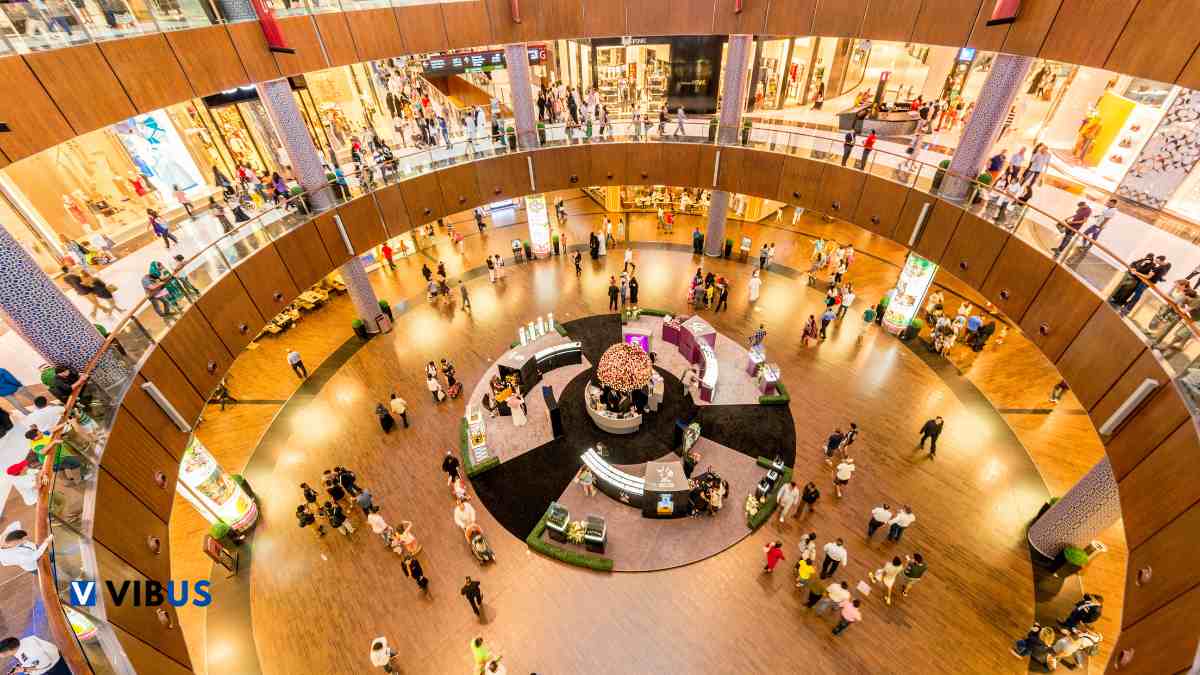Shopping malls have been symbols of American culture and economy for decades, evolving into more than just places to shop; they are now social and entertainment hubs. For anyone under 70, it’s hard to imagine a world without these massive complexes filled with stores, restaurants, and a variety of leisure activities.
In this article, we’ll explore some of the most iconic malls in the United States, their development, and how they compare to the commercial giants around the world.
The legacy of paddock arcade
New York State is home to the Paddock Arcade, the oldest continuously operating shopping mall in the United States, having opened its doors in 1850. This place has not only served as a commercial space for more than a century and a half but has also witnessed the evolution of the “shopping mall” concept from its earliest forms to the modern megastores we know today.
The Paddock Arcade’s enduring presence highlights the significant role these structures have played in American society, evolving to meet the changing needs and preferences of consumers over the years.
Innovation and expansion: crossgates mall celebrates its 40th anniversary
One of the younger examples of these shopping centers, the Crossgates Mall in Albany, recently celebrated its 40th anniversary. This milestone underscores how these spaces continue to remain relevant in the digital age, adapting to new consumer demands and overcoming the challenges facing traditional retail sectors. The ability of malls like Crossgates to innovate, incorporating elements like entertainment and dining experiences, illustrates their importance in the current retail landscape.
The colossus of commerce in new york
New York is not just home to historical structures like the Paddock Arcade; it also boasts some of the largest and most modern shopping malls in the United States. Among them is Destiny USA in Syracuse, which has been ranked among the top five shopping centers in the country according to recent studies based on expert evaluations.
Additionally, New York is proud to have two of the ten largest shopping malls in the nation, underscoring its crucial role in the retail economy of both the state and the country.
The giants of shopping malls in the United States
Across America, shopping malls are not only massive in terms of physical size but also in the variety of services they offer. It’s common to find within these vast spaces everything from fashion stores to cinemas, restaurants, amusement parks, ice skating rinks, and even sports complexes. Some of the most notable include:
- Mall of America in Bloomington, Minnesota, the largest in America with 2.8 million square feet, hosting over 520 stores, 60 restaurants, an amusement park, and an aquarium.
- American Dream in East Rutherford, New Jersey, offering not just retail spaces but also a water park and the only year-round indoor ski center in North America.
- South Coast Plaza in Costa Mesa, California, attracting 24 million visitors annually, is the largest mall in California and the third largest in the United States.
These centers have evolved beyond their primary role as retail points, becoming tourist destinations in their own right, attracting visitors from across the country and around the world.
Comparison global: united states vs. the rest of the world
Despite the impressive scale of shopping malls in the United States, on a global level, the country does not host any of the ten largest malls in the world. This distinction goes to centers located in Asia and the Middle East, such as:
- New South China Mall in China, with 6.46 million square feet.
- Golden Resources Mall also in China, with 6 million square feet.
- Central World in Thailand, with 4.6 million square feet.
- SM Mall of Asia in the Philippines, with 4.2 million square feet.
- Dubai Mall in Dubai, with 3.77 million square feet.
These Asian and Middle Eastern giants have set new standards in terms of size and service offerings, surpassing even the largest malls in the United States.
Shopping malls in the United States have evolved from simple collections of stores to multifunctional complexes offering a wide range of leisure activities and services. Although they do not lead in size globally, these centers continue to be vital to the local economy and culture, constantly adapting to new consumer trends and technologies.
Their ability to innovate and provide a comprehensive experience keeps them relevant and integral to the American way of life. The transformation of these spaces into destinations for entertainment and socialization shows how they have adapted to the shifting retail landscape, ensuring they remain central to communities for years to come.




